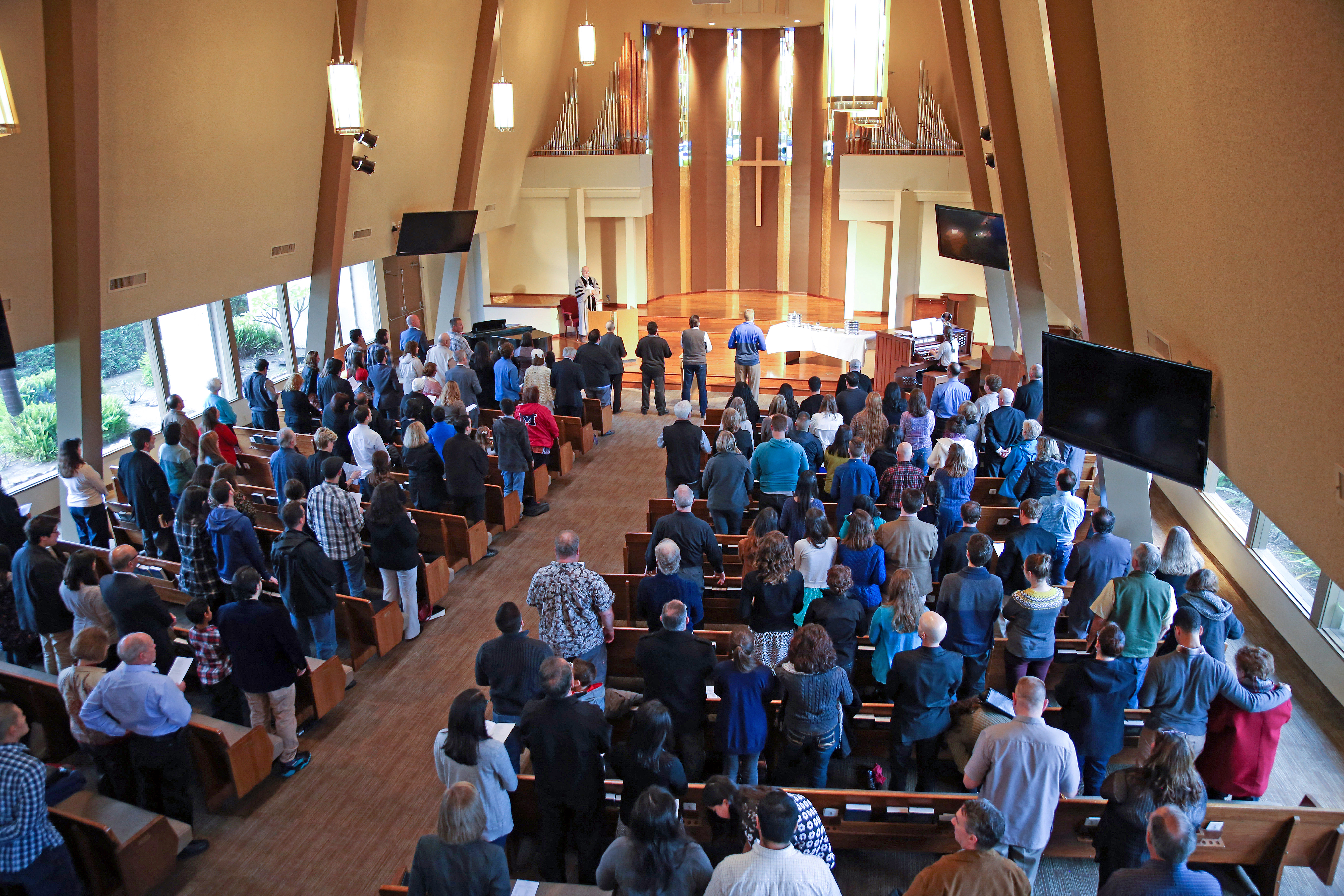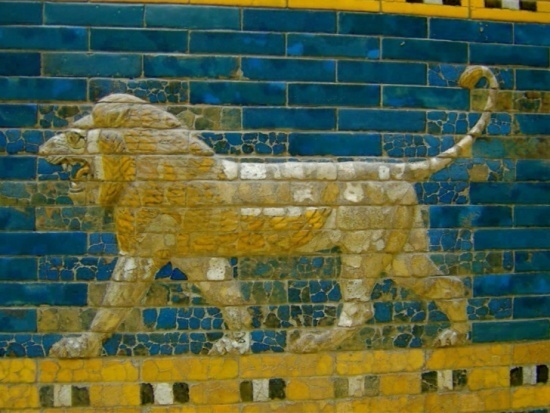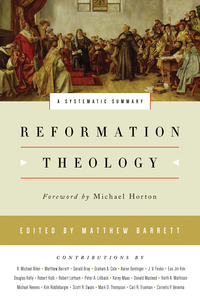Bartolo Colon Does it Again -- His First Career Home Run at 42!
 Monday, May 23, 2016 at 02:31PM
Monday, May 23, 2016 at 02:31PM The secret fantasy of every pudgy middle-aged baseball fan.
 Baseball
Baseball
Living in Light of Two Ages
____________________________
 Monday, May 23, 2016 at 02:31PM
Monday, May 23, 2016 at 02:31PM The secret fantasy of every pudgy middle-aged baseball fan.
 Monday, May 23, 2016 at 10:32AM
Monday, May 23, 2016 at 10:32AM 
Sunday Morning, May 29: As we continue with our series on the Book of Daniel, we come to the second half of Daniel 7 (vv. 15-28), and Daniel's vision of a "fourth kingdom." Our worship service begins at 10:30 a.m.
Sunday Afternoon: We continue our discussion of Lord's Day 11 (Q 29-30) and will focus upon Jesus as the only and all-sufficient Savior. Our catechism service begins @ 1:15 p.m.
Wednesday Night Bible Study, May 25: We continuing our time in chapters 4-5 of 1 Thessalonians, discussing Paul's teaching regarding Christ's second advent. Our study begins at 7:30 p.m.
For more information on Christ Reformed Church you can always find us here (Christ Reformed Info), or on Facebook (Christ Reformed on Facebook).
 Sunday, May 22, 2016 at 03:24PM
Sunday, May 22, 2016 at 03:24PM 
Here's the audio from this morning's sermon, the thirteenth in a series of sermons on the Book of Daniel: Click Here
 Sunday, May 22, 2016 at 03:17PM
Sunday, May 22, 2016 at 03:17PM  The Gifts That He Gave
The Gifts That He Gave
On this program the hosts are continuing their series unpacking the implications of the ascension of Christ. This week they are joined by Justin Holcomb, who is the canon for vocations for the diocese of Orlando of the Episcopal Church. He is the author of the recent work God Made All of Me: A Book to Help Children Protect Their Bodies. He is also the author of Rid of My Disgrace, Know the Creeds and other excellent books. We are also honored to have Adriel Sanchez with us, who is the pastor of North Park Presbyterian Church in San Diego.
What are the fruits of Christ’s victorious death and resurrection, and how are they distributed? The hosts will answer this question by exploring Ephesians 4 and Psalm 68. After introducing the gifts that Christ has given to his church, they challenge us to consider how a recovery of these things can provide lasting nourishment and health for the body of Christ. Join the hosts as they continue this series and unpack the implications of Christ’s ascension on the White Horse Inn.
 Thursday, May 19, 2016 at 11:59AM
Thursday, May 19, 2016 at 11:59AM  Yup, I know, it is still a long way off, but here's the first look at an important new book.
Yup, I know, it is still a long way off, but here's the first look at an important new book.
My contribution is, "The Eschatology of the Reformers"
From the publisher (Crossway):
Edited by Matthew Barrett, Foreword by Michael Horton, Contributions by R. Michael Allen, Gerald Bray, Graham A. Cole, Aaron Denlinger, J. V. Fesko, Eun Jin Kim, Douglas Kelly, Robert Kolb, Robert Letham, Peter A. Lillback, Korey Maas, Donald Macleod, Keith A. Mathison, Michael Reeves, Kim Riddlebarger, Scott R. Swain, Mark D. Thompson, Carl R. Trueman, Cornelis P. Venema, Matthew Barrett
Far too often, the Protestant Reformation is seen as a bygone and irrelevant movement in church history. Some of the best theologians and historians of today, including Michael Reeves, Gerald Bray, Michael A. G. Haykin, Carl R. Trueman, and many others, have collaborated to counter this view, showing how Reformation theology is not only still relevant but actually essential—even five hundred years later. Offering readers accessible summaries of a host of important doctrinal issues discussed and debated by the Reformers, this comprehensive book includes entries on topics such as biblical authority, the Trinity, the attributes of God, predestination, union with Christ, justification by faith, the church, the sacraments, and more. Perfect for both individual and classroom use, this volume demonstrates that Reformation theology—far from being irrelevant—is more crucial to the vitality of the church than ever.
 Tuesday, May 17, 2016 at 10:06AM
Tuesday, May 17, 2016 at 10:06AM 
The Third in a Series of Sermons on 2 Peter
Peter is writing to warn those reading his second epistle of serious doctrinal error in the churches. Knowing that he does not have long to live, Peter leaves us with his testament (this epistle). In extending to us his final words, Peter includes an exhortation that Christians must strive to manifest those God-given virtues which flow from that eternal life given to us as a gift by the power of God. The desire to see these virtues manifest in the lives of God’s people stands in sharp contrast to the desire to serve the flesh, which is characteristic of the lives of those who have departed from the truth. But in order to properly rebuke the false teachers, Peter must first establish his apostolic authority, as well as that of the prophetic word (the Scriptures). Peter has seen the glory of Jesus with his own eyes. The Apostle relates how the glory he has seen on the holy mountain is but a foretaste of much greater glory yet to come when Jesus returns at the end of the age. In Jesus Christ the prophetic word (the Old Testament) is confirmed because all such prophecy comes from God, not from the will of men. God’s prophets are carried along by the Holy Spirit, giving to us that to which we commonly refer as “Holy Scripture.”
As we continue to work our way through 2 Peter, we come to that section of this letter identified by some as Peter’s “purpose statement” (to use a modern expression), or better his “testament.” We read in verse 14 of the first chapter that the Apostle is well aware of his impending death. In light of this fact, verses 12-15 serve several important purposes. In his farewell “testament” Peter refers back to his previous “mini” sermon in verses 3-11, in such a way as to assure his readers that the exhortation in verse 10 (“therefore, brothers, be all the more diligent to confirm your calling and election, for if you practice these qualities you will never fall”) is intended as a pastoral reminder, and is not intended as a threat to those Christians with a troubled conscience. Peter’s testament also serves as a literary bridge from the previous discussion of those virtues which ought to be manifest in the Christian life (vv. 5 -7), to the lack of such virtues apparent in the lives of those who teach false doctrine, or who have been taken in by it (chapters 2-3). The contrast between the virtues spelled out in verses 5-7, and the godless conduct described by Peter in the second chapter of this epistle could not be greater.
A “testament” such as we find here is not unusual in the ancient world. Peter’s “testament” mirrors several of those found in the Old Testament, like those of Jacob (Genesis 49), Moses (Deuteronomy 33), Joshua (Joshua 24 ), and David (1 Kings 2). There are also a number of extra-biblical testaments which may have been known to Peter, or to those reading this short epistle. These “testaments” include the Testaments of the Twelve Patriarchs, and the testaments of Job and Moses. There are also final testaments in the New Testament, for that matter. We think of Jesus’ “farewell” discourse given in the upper room shortly before Jesus’ arrest and trial (John 13-16), and even Paul’s “farewell speech” to the Ephesians elders recounted in Acts 20:17-35.
Such farewell speeches usually include the following elements: 1). A prediction of death, 2). A prediction of future crises for those the dying person leaves behind, 3). An exhortation to greater virtue, 4). The promise of God’s blessing or the giving of a divine commission, and then finally, 5). A reference to the legacy the departing dying person leaves behind. The structure of this epistle and its obvious differences in style and speech from 1 Peter, can be easily explained if 2 Peter is the Apostle’s “testament” (final words) to the churches. To fulfill his apostolic office, Peter is compelled to warn the churches of the dangers of false doctrine.
To read the rest of this sermon, Click Here
 Monday, May 16, 2016 at 10:24AM
Monday, May 16, 2016 at 10:24AM 
Sunday Morning, May 22: We return to our series on the Book of Daniel. This week we take up the first half of Daniel 7 (vv. 1-18), and Daniel's vision of one like a "Son of Man." Our worship service begins at 10:30 a.m.
Sunday Afternoon: We will consider Lord's Day 11 (Q 29-30) and discuss the person and work of Christ. Our catechism service begins @ 1:15 p.m.
Wednesday Night Bible Study, May 18: We are going verse by verse through 1 Thessalonians. We continuing to work our way through chapter 4 and we are discussing Paul's teaching regarding Christ's second advent. Our study begins at 7:30 p.m.
For more information on Christ Reformed Church you can always find us here (Christ Reformed Info), or on Facebook (Christ Reformed on Facebook).
 Sunday, May 15, 2016 at 04:35PM
Sunday, May 15, 2016 at 04:35PM  Christ's Coronation
Christ's Coronation
On this program the hosts are continuing their series unpacking the implications of the ascension of Christ. Now that he has died for our sins and has been raised for our justification, what is Christ doing? Is his saving work merely a thing of the past?
The hosts will focus particularly on his present ministry as our advocate and intercessor before the Father, and his everlasting reign as Lord of Lords and King of Kings. Join the hosts as they continue this series and unpack the implications of Christ’s ascension on the White Horse Inn.
 Tuesday, May 10, 2016 at 11:03AM
Tuesday, May 10, 2016 at 11:03AM  The Second in a Series of Sermons on 2 Peter
The Second in a Series of Sermons on 2 Peter
There is a reason why Peter’s second epistle and the small book of Jude are not well-known, or widely read and preached upon in the churches. In both these letters, we find emphatic warnings about false teachers and the dangers of false doctrine they spread. For those who embrace the church-lite ethos of American Christianity, the message of 2 Peter and Jude will not be appreciated, nor warmly received. While many preachers and churches wish to emphasize the positive, 2 Peter and Jude remind us of the negative. There is truth, and there is error. If we believe the one (truth) we are going to encounter the other (error). When contemporaries tell us that doctrine does not matter, 2 Peter and Jude remind us that it does. If our contemporaries seek unity and avoid controversy to the point of fostering a willingness to make peace with false teaching, then 2 Peter and Jude both warn us of the great dangers of doing exactly that.
This is not to say unity is a bad thing–Christians are to seek unity around the truth of those doctrines passed down to us by Jesus and his apostles in the pages of Holy Scripture. Reformed Christians identify our own doctrinal standards as the “Three Forms of Unity” for a very important reason. We believe particular doctrines, and unite around them by confessing a common faith–a faith which we believe to be biblical and which is clearly and concisely summarized in our confessions. Unity is very important, so long as it grounded in the truth of those things taught in God’s word.
The Psalmist tells us “behold, how good and pleasant it is when brothers dwell in unity!” ( Psalm 133:1). Jesus prays that his people would be one (John 17:11). Paul likewise speaks of Christians standing together because we are one body and indwelt by the same Holy Spirit. We have one common hope, one Lord, one faith, and one baptism (Eph 6:4-5). We may each be different parts, but we are all members of the body of Christ. This is precisely why false doctrine is so dangerous–it is as though one part of the body has cancer, or has become gangrenous. Such seriously illness in one part of the body must be dealt with immediately when it arises, and even perhaps removed, to maintain the health of the whole.
Sadly, we know too well those overzealous folk who apply the label “heretic” to anyone with whom they have the even slightest doctrinal disagreement. It is one thing to defend the truth from error. It is quite another when ill-informed, or just plain ornery people, all-too easily declare others to be heretics, without serious consultation of the perceived heretic’s entire body of work, consideration of their character, and often without any regard to the disruption of the peace of the church, or the creation of schisms and factions which can result from such rash declarations. Defend the truth we must. Identify false teachers we must. Repudiate and refute their teaching we must. But there is a right way to do this. And there is a wrong way. Peter and Jude will lead us in the right way.
For good or for ill, as the case may be, Peter and Jude wrote before the advent of the self-professed internet theologian–typically a bright and witty (or even a caustic) person, who, having no formal theological training, who writes on doctrinal matters they may not fully understand but with the certainty of a papal decree. The good thing about such people is that they challenge and lampoon sacred cows and pomposity which cry out for such treatment. They often are often the first ones to smell the smoke of false doctrine, which, if not extinguished, can lead to a serious and destructive fire. But all too often, the internet theologian engages in gossip, speaks authoritatively to matters about which they only know little, and often times in open violation of the ninth commandment, casting their opponent in the worst possible light. Internet theologians can be brave behind the anonymity of their computers and tablets, but rarely if ever do they thoroughly investigate, personally consult, or properly research those whom they engage from behind the safety of their IP address.
To read the rest of this sermon, Click Here